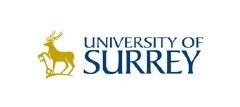Jan 5 2009
The Advanced Technology Institute at the University of Surrey has been awarded a major research grant by the energy giant E.ON based in Germany as part of their 'Application of Nanotechnology in the Energy Business'. The three year project, led by Professor Ravi Silva, Director of the Advanced Technology Institute, aims to utilise the nanotechnological expertise of the institute in the design, fabrication and characterisation of the organic-inorganic hybrid solar cells.

At present over 90% of the solar cell modules are silicon-based, which offer relatively high power conversion efficiencies, albeit at a higher cost. Conventional technologies have not been able to address the key issue facing the solar electricity market; the high cost of a unit of energy produced. The aim of all major PV projects to date has been either a highly efficient $1 per Watt cell, or a more pragmatic cell/system approach of possibly lower cell efficiency, but with a significant manufacturing, power electronics and installation cost advantage. The emergence of organic material based solar cell technologies promise great potential towards low cost energy. Their solution-based simple fabrication techniques are expected to off-set the inherently lower efficiencies of the organic cells. Professor Silva’s group at the University of Surrey aims to improve these technologies even further, and move closer to commercialisation, by incorporating inorganic nano-scale materials with their expertise in nanotechnology. Carbon nanotubes, which are nano-scale structures, can be incorporated into organic cells enhancing their performance greatly, according to Professor Silva. The University holds a number of patents in developing hybrid systems for practical applications including solar cells and solid state lighting, and he believes with this new project, these materials can be effectively used to solve one of the burning issues of the day, energy.
Professor Ben Murdin, Associate Dean for Research, comments: “This project is a fine example of basic research, undertaken as part of an EPSRC Portfolio Partnership, moving to the next stage of exploitation. The grant of close to €1m will be a welcome addition to the nanotechnology portfolio of the Faculty and University.”